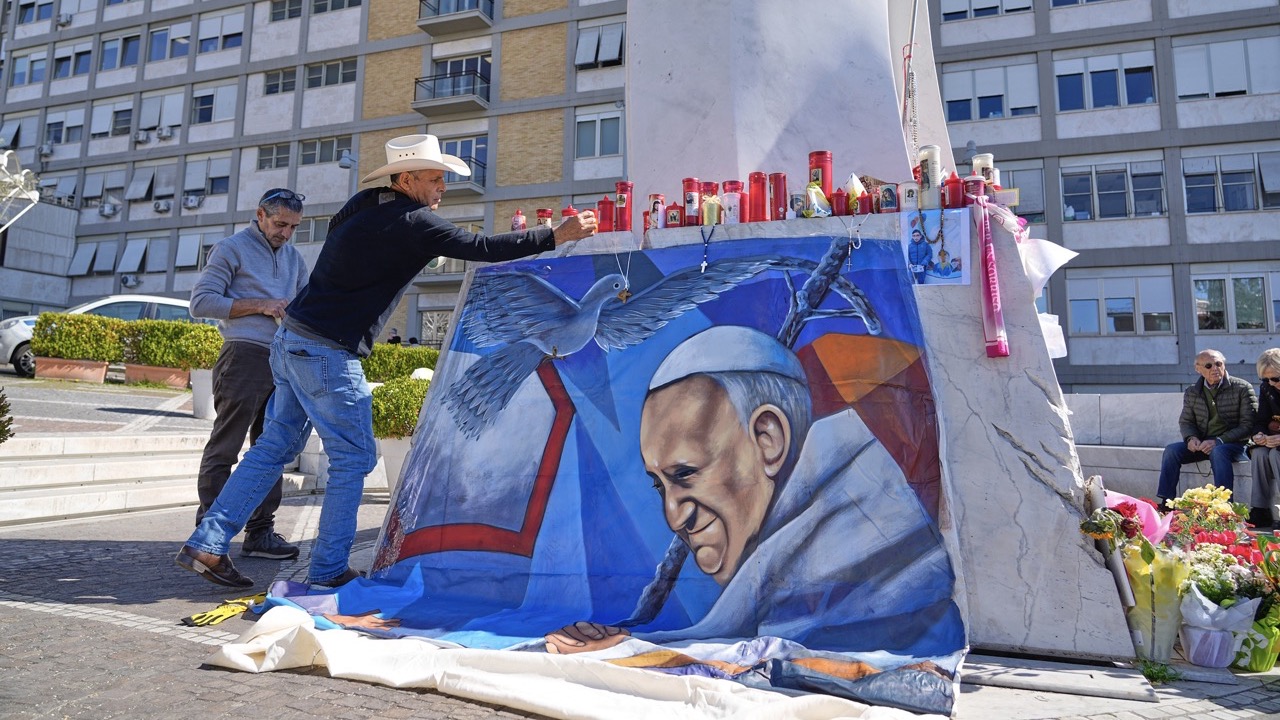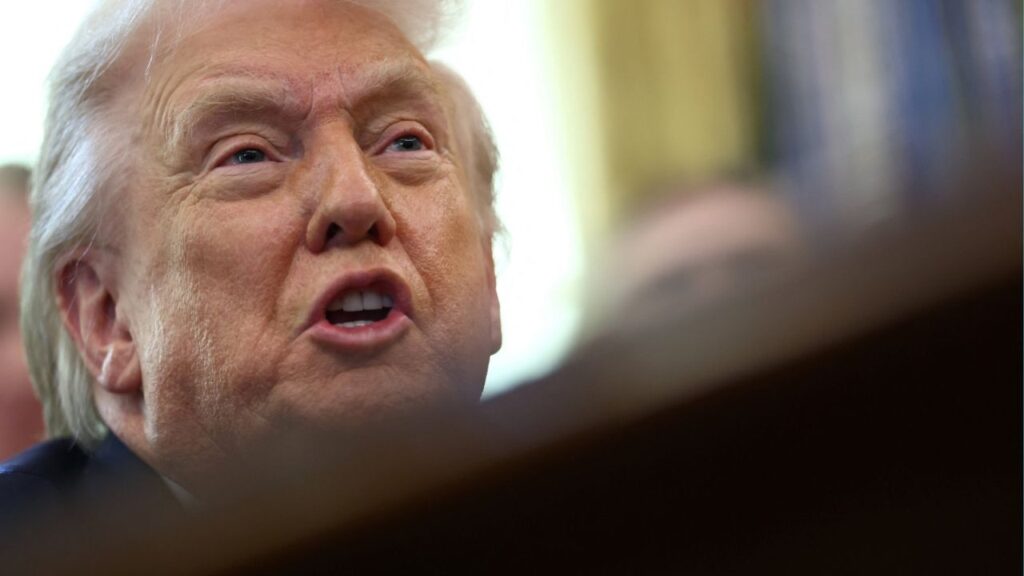As the Catholic Church begins Lent, Pope Francis remains hospitalized, prompting reflections on mortality and faith. (AP/Gregorio Borgia)

- Pope Francis absent from Ash Wednesday celebrations due to ongoing hospitalization for double pneumonia.
- Cardinal Angelo De Donatis leads Lenten procession, expressing solidarity with the ailing pontiff.
- Vatican updates on Pope's health indicate stable condition but guarded prognosis as Lent begins.
Share
VATICAN CITY — The Catholic Church opened the solemn Lenten season leading to Easter on Wednesday without the participation of Pope Francis, who was in the third week of hospital treatment for double pneumonia.
A cardinal took the pope’s place leading a short penitential procession between two churches on the Aventine Hill, and opened an Ash Wednesday homily prepared for the pontiff with words of solidarity and thanks for Francis.
“We feel deeply united with him in this moment,” Cardinal Angelo De Donatis said. “And we thank him for the offering of his prayer and his suffering for the good of the entire church in all the world.”
Health Update
In its latest update on Francis’ health, the Vatican said that the pope rested well overnight, waking up shortly after 8 a.m. after a second night sleeping with the ventilation mask. Francis remained in stable condition, with a guarded prognosis, meaning he was not out of danger.
The 88-year-old pope, who has chronic lung disease and had part of one lung removed as a young man, had two respiratory crises on Monday in a setback to his recovery.
On Tuesday, he was breathing with just the help of supplemental oxygen after respiratory crises a day earlier, but resumed using a ventilation mask at night, the Vatican said.
Francis’ hospitalization began on Feb. 14 and is the longest of his 12-year papacy.
Related Story: Pope Francis Sits Upright in Armchair as Argentines in Rome Pray for His Recovery
Fragility of Life
In the homily, De Donatis said the ashes that observant Catholics receive on the first day of Lent are reminders that “our lives are fragile and insignificant.”
“Furthermore, the condition of fragility reminds us of the tragedy of death,” he said. “In many ways, we try to banish death from our societies, so dependent on appearances, and even remove it from our language. Death, however, imposes itself as a reality with which we have to reckon, a sign of the precariousness and brevity of our lives.”
Ash Wednesday
Francis’ treatment continues as the Vatican prepares for Lent, the solemn period beginning with Ash Wednesday and leading up to Easter on April 20. A cardinal has been designated to take Francis’ place at Vatican celebrations, with a traditional service and procession in Rome
On Ash Wednesday, observant Catholics receive a sign of the cross in ashes on their foreheads, a gesture that underscores human mortality. It is an obligatory day of fasting and abstinence for Catholics that signals the start of Christianity’s most penitent season.
Vatican Prepares for Lent Without Francis
The pope was also supposed to attend a spiritual retreat this coming weekend with the rest of the Holy See hierarchy. On Tuesday, the Vatican said the retreat would go ahead without Francis but in “spiritual communion” with him. The theme, selected weeks ago and well before Francis got sick, was “Hope in eternal life.”
Francis, who is not physically active, uses a wheelchair and is overweight, had been undergoing respiratory physiotherapy to try to improve his lung function. The accumulation of secretions in his lungs was a sign that he doesn’t have the muscle tone to cough vigorously enough to expel the fluid.
Doctors often use noninvasive ventilation to stave off intubation or the use of more invasive mechanical ventilation. Francis has not been intubated during this hospitalization. It’s not clear if he has provided any instructions on the limits of his care if he declines seriously or loses consciousness.
Catholic teaching holds that life must be defended from conception until natural death. It insists that chronically ill patients, including those in vegetative states, must receive “ordinary” care such as hydration and nutrition, but “extraordinary” or disproportionate care can be suspended if it is no longer beneficial or is only prolonging a precarious and painful life.
___
Associated Press writer Colleen Barry in Rome contributed to this report.
RELATED TOPICS:
Categories

Teen Arrested at Visalia Mall After Firearm Report

Tumblr Goes Down for Thousands, Downdetector Reports
















